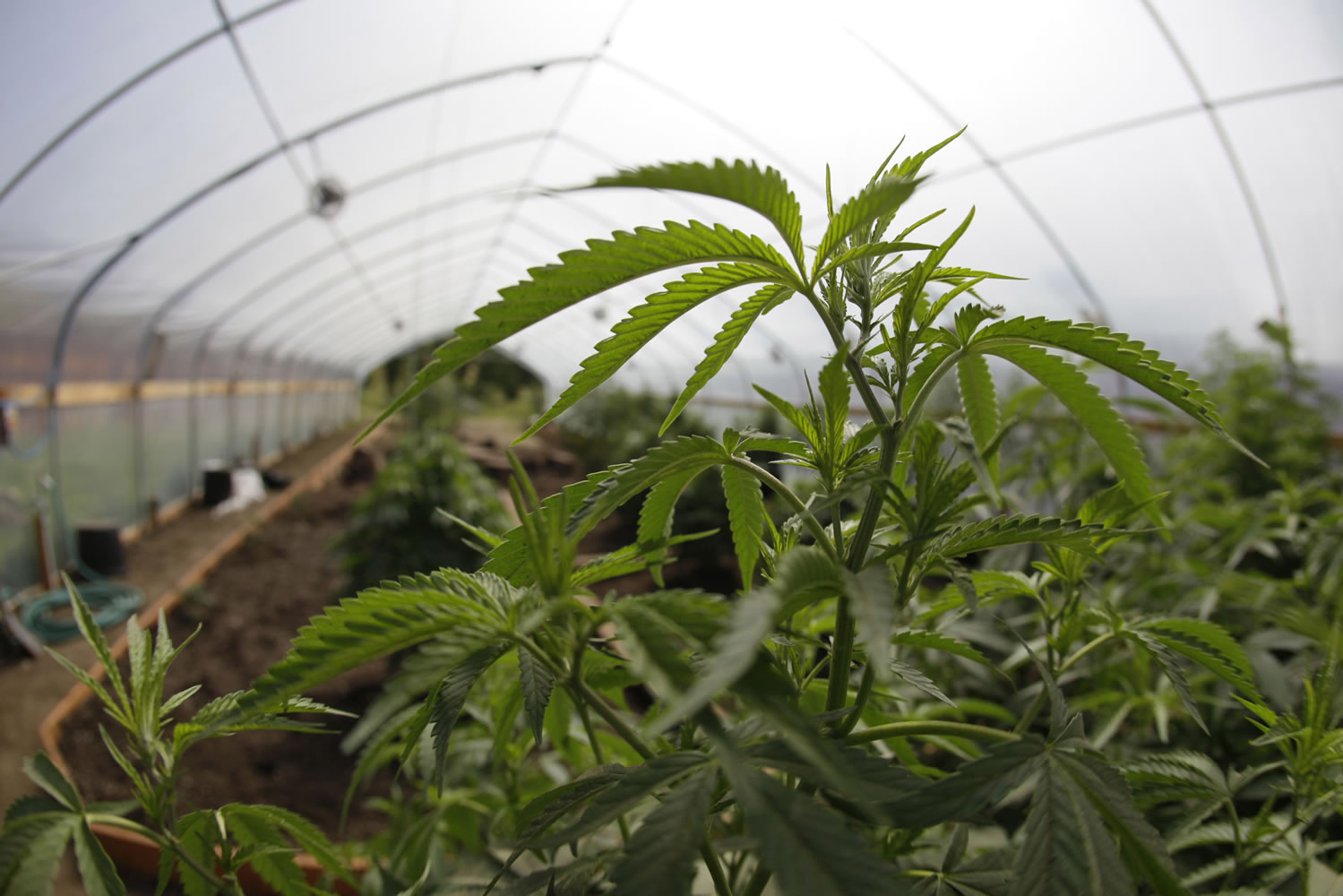WOODLAND — As state laws regulating marijuana remain shrouded in a legal uncertainty, Clark County’s smaller cities continue to take a cautious approach in applying them locally.
Whether to allow collective marijuana gardens within city limits will likely remain in limbo for the next year. Despite Vancouver City Council’s decision Monday to allow groups to grow pot in specified areas, the smaller cities say they want more clarity before taking the plunge with their own ordinances.
At a Woodland City Council meeting Monday night, city leaders agreed to re-address the city’s six-month ban on the gardens in January, after it lapses. That decision came while Vancouver councilors were voting 6-1 to allow the gardens within areas zoned for light or heavy industry, such as the Columbia Tech Center business park, the Columbia Business Center and the Port of Vancouver.
Officials in Woodland and elsewhere say they’re waiting to see what happens at the state and federal level before writing a collective gardens ordinance. State law allows medical marijuana growers to establish community gardens where as many as 10 patients can grow up to 45 plants.
Watching liquor board
Further casting the situation into a hazy light: November’s passage of voter-approved Initiative 502, which legalizes having less than an ounce of pot for recreational use. While the initiative will have no bearing on how the state regulates medical marijuana, rules established by the Washington State Liquor Control Board for recreational marijuana could influence developing guidelines for collective gardens.
The board will start work Thursday on implementing I-502, with a late-2013 deadline scheduled for it to establish rules governing retail marijuana sales.
Woodland officials say they want to wait and see how things work out before addressing collective gardens.
“While we’ve done some discussing, I don’t think we’re ready to make a decision yet,” Woodland Mayor Grover Laseke said.
Other small cities
Woodland isn’t alone in taking a cautious approach to the gardens. Camas banned the gardens outright in September. Washougal, Ridgefield, Battle Ground, Yacolt and La Center have all placed their own temporary bans on pot gardens.
Laseke said most small cities don’t have the resources to investigate the legal ramifications of the gardens, so they’re watching to see what larger municipalities do.
What they’ve gotten in return is a mixed message.
County commissioners directed staff last month to work on a ban of collective gardens on unincorporated land. The Drug Enforcement Administration has warned the county that employees wouldn’t be immune from prosecution if they worked on permitting the gardens.
Elected officials in the county’s smaller cities say Vancouver’s decision could nonetheless influence how they regulate collective gardens moving forward.
“I know we are watching how Vancouver handles the issue,” said Washougal Mayor Sean Guard.
But for now, Washougal’s mayor said, he’s looking for guidance from federal authorities.
Guard said he felt it was troublesome to permit something the federal government says is illegal.
“Given that federal law trumps state and local laws,” Guard said, “I don’t see a lot of reason for (the Department of Justice) to climb onboard something that Washington state voters approved.”
In Battle Ground, where a six-month moratorium on collective gardens ended in July, city officials say they’re thinking of possibly extending it in the future.
There are currently two medical marijuana grow operations in Battle Ground, the city’s Community Development Director Robert Maul said. It’s unclear whether there’s a “collective” component to either. “No one has sought permits yet,” he said.
Meanwhile, Camas Chief of Police Mitch Lackey told City Council at a Nov. 19 workshop that he’ll continue ticketing people for having pot until he’s clear on how the federal government interprets Initiative 502.
Camas has already staked a position on collective gardens, with City Council voting unanimously in September to ban them.
“We know what the concepts are right now,” Lackey said of the state’s new laws regulating medical and recreational marijuana use, “but we don’t know how the minutiae will be interpreted until after (Thursday).”
Tyler Graf: 360-735-4517; http://twitter.com/col_smallcities; tyler.graf@columbian.com.



